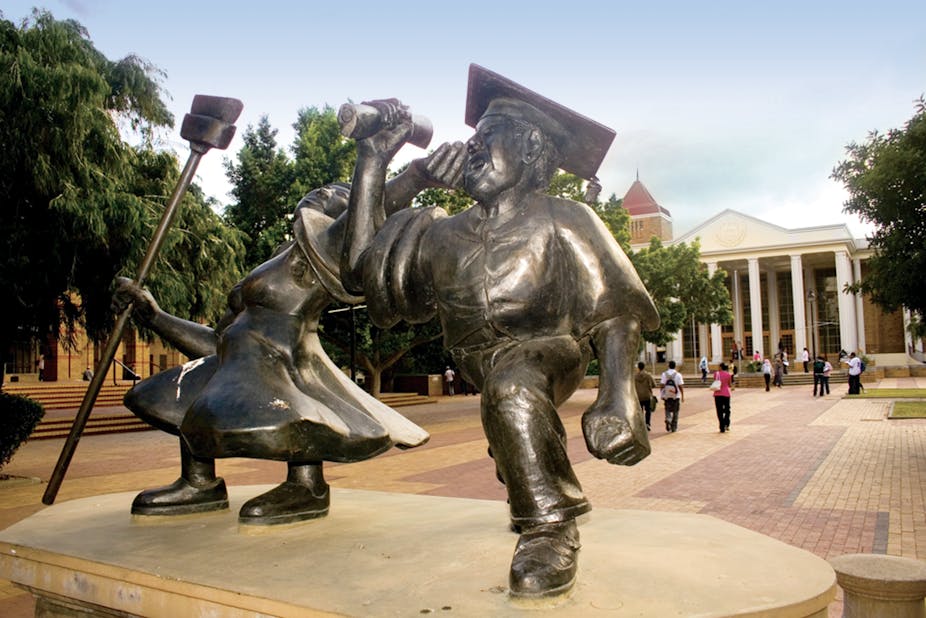Great things are happening in African universities. There is a new mood of determination in higher education institutions across the continent, from South Africa to Ghana to Uganda and in many places in between. Special metrics are being developed to measure African universities’ performances in the global higher education landscape.
Some institutions have turned themselves around remarkably and are meeting the continent’s various challenges head on.
I was reminded of this recently when I spent a week at the University of the Western Cape (UWC) in South Africa. By the turn of the millennium, the institution – which is about 20 kilometres outside Cape Town – was in a precarious position.
It was also poised for a merger with a nearby technical institute. This would have been part of the higher education sector’s radical restructuring after the end of apartheid.
The merger didn’t go ahead because of what the country’s then-education minister called “many impressive institutional changes and positive academic developments” at UWC. In the 13 years since the minister’s comments, UWC has undergone a remarkable transformation.
It boasts the largest school of dentistry in Africa and is a World Health Organisation collaborating centre focusing on oral health, HIV/AIDS and informatics and telemedicine.
In its 2007 to 2011 assessment period, South Africa’s National Research Foundation placed UWC first in South Africa in Physics, Molecular Biology and Genetics; and in Biology and Biochemistry, and second in the country in Computer Science and in Space Science.
Many of these subjects can lead to careers in areas where South Africa currently lacks crucial skills.
Winds of change
On this last point, UWC is echoing an emerging trend. More and more African universities are realigning themselves to tackle their countries’ societal and economic problems. A recent study by the British Council highlighted some of the issues that the continent’s universities face. They include:
1) Gender inequality: Just 38% of the continent’s student intake is female. Here, UWC bucks the trend, especially in the crucial realm of science. The gender split of students in science is roughly equal. I was told by one of the university’s key planning specialists, Larry Popkas, that in 2014 slightly more women were awarded postgraduate degrees than men – a ratio of 175 to 166.
2) Brain drain: The council warns that sub-Saharan Africa has the highest rate of outbound student mobility of any region. This leads to significant risk of brain drain.
The University of Ghana and Uganda’s Makerere University are doing well to develop and retain talent by increasing postgraduate numbers. The University of Ghana’s Vice-Chancellor Ernest Aryeetay outlined his institution’s improved figures in a presentation delivered as part of the Sussex Development Lecture series earlier this year.
In 2008-09, postgraduates made up 7% of the university’s student population. In 2010-11, the figure had risen to 11%. In the same period, the number of doctoral students has doubled from 0.4% of the student population to 0.8%.
For Makerere, Aryeetay said, the equivalent figures mark slower progress: for masters students from 4% (2008/09) to 5% (2010/2011), and for doctoral students from 1% to 2%. These are slow but steady gains in an important sector of the student population.
3) Skills: The council’s report also warns that too few African graduates are adequately skilled. It seems that universities don’t research or understand their continent’s economic needs and produce graduates to meet those needs.
Again, UWC has done well in this regard. Its new vice-chancellor, Tyrone Pretorius, has described the university as:
… one of the key anchor institutions to help regenerate and shape the future identities of the areas where we are located.
Pretorius wants to:
… improve our neighbourhood’s capacity, accelerate economic development (and) … bring university education and health services in support of struggling communities.
This message is echoed in a statue by David Hlongwane that stands at the university’s entrance. It shows a domestic worker celebrating her son’s graduation and suggests a focus on the university’s own, economically impoverished backyard - and immediate, local needs.
What the pioneers teach us
The experiences of UWC, Makerere and the University of Ghana give some pointers for strategy. For starters, it must be home grown. Institutions can’t just rely passively on government or donors, but must actively seek intellectual and funding partners.
They must also drive up teaching quality and standards for academic staff; and insist on academic quality, integrity and relevance for the labour market. Finally, university leaders must remember that they are preparing students for life, not just a job and an easy ride.
It’s a challenging environment, but with strong direction and leadership, the university at all levels can catch the vision.
Author’s note: This article has been adapted from a longer version in WiderAngle July-August 2015.

